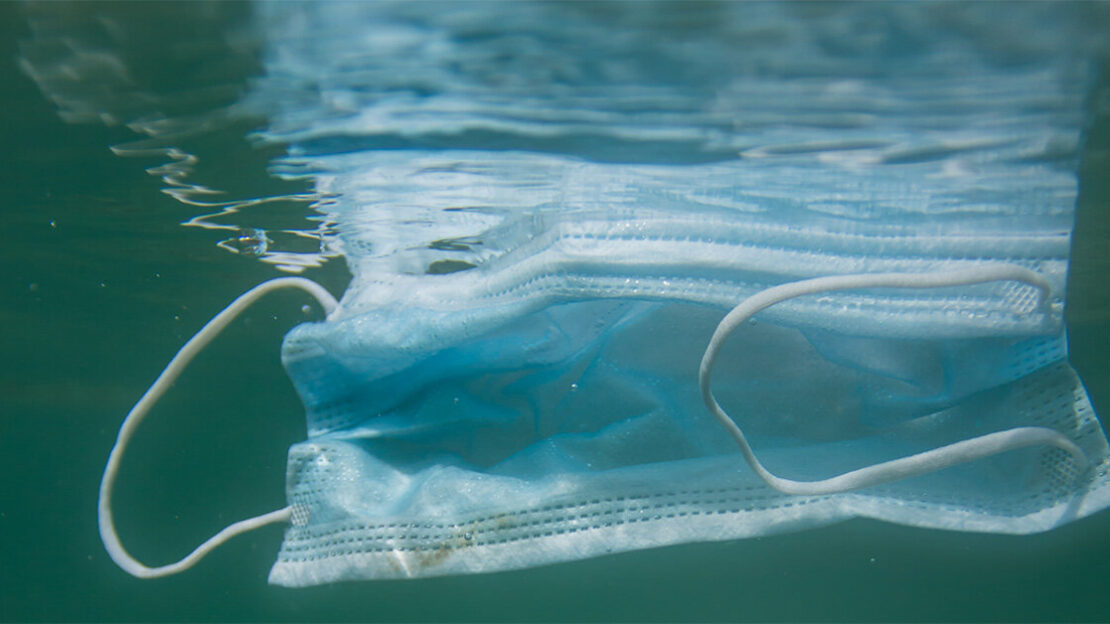Selina Donald is the founder of The Bulb, a sustainability consultancy for event organisers, brands and NGOs she has recently authored a guide to Sustainability, Safety and Events in a Post-Lockdown Era. In this blog she discusses the effects of coronavirus and climate change on and lays out clear actions for events, business and policy makers:
With many businesses facing an uncertain future, others frantically reshaping their business model to profit from virtual events and all of us waiting for a snippet of clear guidance from Boris and the gang, 2020 has been a challenging year for events to say the least. In spite of this, the resilience of the industry, the sense of community and the drive to seek innovative solutions has prevailed and a stronger industry will almost certainly emerge.
The same spirit is what’s required to tackle the “other” global emergency, climate change. Bill Gates recently warned by 2060, climate change could be just as deadly as Coronavirus. By 2100, without fast action, it could be five times as deadly. Coronavirus is accelerating climate change through the dramatic rise of plastic pollution with an estimated 194 million disposable face masks and gloves used worldwide every month. Face masks take up to 450 years to decompose, and as they can’t be recycled through local authorities, they are ending up in landfill, on the streets or worse in our oceans, evidenced in the recent footage of an octopus hiding under a face mask on BBC’s War on Plastic.
Coronavirus and climate change are collective problems that require a collective solution. I believe now is the time for businesses and individuals to reassess their values and think about how to become more responsible and sustainable. We are not passive observers, but rather, are active players in the way our industry operates and the future of this industry is strongly affected by the choices we make today. We’re overflowing with expertise on crowd management, health and safety and creative solutions to challenges such as social distancing and PPE and we must ask ourselves where we can have the most influence – and then we must act.
Policy Actions
We require financial support to aid us through the recovery period as well as financing innovation and technologies that will enable our industry, the fifth biggest polluter in the world, to build back better. The UK Chancellor, Rishi Sunak, launched the recovery budget with the line “a green recovery with concern for the environment at its heart”. However the budget had just 17 uses of the word ‘green’, four uses of the word ‘environment’ and two mentions of climate.
To put pressure on the government we can:
- Support #wemakeevents, a campaign petitioning the government for increased financial support
- Sign up to the Green New Deal and support the Build Back Better campaign for the wider economy.
Business Actions
The businesses that embrace sustainability in all its forms – social, environmental, and economic – demonstrate commitment to their organisation’s long-term profitability and growth, benefiting both their bottom line and the Planet. The need to move with the ‘new normal’ and consciously take into account the impact business activities have both on people and the Planet is how the leaders of tomorrow will thrive.
- Embrace the new normal working arrangements and social conditions. Presenteeism is out of the door with a focus on flexible working. 69% of workers believe that hours-based contracts should be scrapped in favour of results delivered.
- As climate change continues to advance and challenges increase, meaningful partnerships and projects are what is needed.
- Adversity prompts innovation. Make responsible decisions across supply chains, processes, people and materials and embrace and embed these choices into the creative and operations as a whole, rather than at the expense of each other.
Event Organiser Actions
Every act and effort by each individual across the industry counts. Whilst everything we know is up in the air, one guarantee is that PPE will be crucial in the delivery of events moving forward.
- Above all, always order reusables – reusable face masks and reusable cups. If you must use disposable then I have found EcoBreathe, a recyclable (made from one type of plastic only) disposable mask which comes with a free collection and recycle policy. For face protection visors, check out plastic-free REELshield which can be recycled through Terracycle’s zero waste scheme.
- All the fantastic materials in the world do not matter, unless it’s disposed of properly. It is important that you do not attempt to recycle any PPE via local authority recycling streams as you will not only contaminate the entire bin of contents, which will result in everything ending up landfill, but you also put frontline workers at risk. Make sure you have a planned disposable process for all waste from your event, with clearly labelled bins throughout the venue.
- Crowd management is a challenge at the best of times, so throw in social distancing and you’ve got a headache to say the least. One Plan is a site plan tool which includes a toolkit of social distancing calculators measuring how many people can fit in one area, sets the distance between people on your CAD and also models your arrival and exit times.
If as an industry, we are sincere in our recognition of climate change, and serious about changing the antiquated ways from the past, then we have the potential now to lead a recovery from Coronavirus which puts the event industry in a radically different place to where it was in February. We should see Coronavirus as a re-evaluation and re-wiring opportunity, to use this moment of pause to make responsible decisions which put the health of people and the Planet first and foremost, as well as create resilient systems and structures that can respond to both the Coronavirus and climate crisis.
Follow Selina on LinkedIn and the The Bulb on Instagram or visit their website.
This blog originally appeared in our September 2020 newsletter. Sign up receive monthly event sustainability news, case studies and guest blogs direct to your inbox using the form below.


